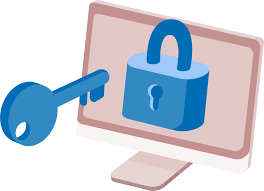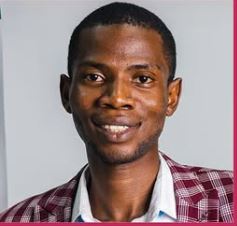They Published It, But Can You Read It?
They Published It, But Can You Read It?
Emmanuel Omeiza Momoh
Imagine walking into a public library in a bustling South Asian city. You are eager to learn more about climate change policy, and maybe even dig into the latest scientific thinking on renewable energy or food systems. You find shelf after shelf of outdated materials; nothing from the past five years. You ask the librarian about the newest research, and they smile apologetically: “It exists,” they say, “but you’d need to pay a Western university to read it.” In a digital age where knowledge spreads faster than ever, how is it that the world’s most crucial insights are still locked behind walls?
This scene plays out every day in many parts of the world, not just in libraries but in schools, NGOs, start-ups, and even government departments. And it’s not because the research doesn’t exist; it’s because it isn’t accessible. The paradox is stark: researchers are publishing more than ever before, yet much of this work is invisible to the very communities it aims to help. It’s like announcing a citywide free meal, then putting the food in a locked room only certain people can enter.
—Even when articles are publicly funded, they are not always publicly readable. It raises a troubling question: who is academic research really for?—
At the heart of this dilemma lies the traditional academic publishing model, which often charges steep fees for access. These paywalls restrict scientific knowledge to those affiliated with institutions that can afford costly subscriptions. Meanwhile, independent educators, journalists, policy analysts, and everyday citizens are left on the outside. Even when articles are publicly funded, they are not always publicly readable. It raises a troubling question: who is academic research really for?
The open access movement has tried to change this, promising to make research freely available to everyone. The idea is noble and, in some ways, successful. More journals now allow authors to make their work openly accessible, and some institutions have adopted policies to support this. But the reality remains uneven. Many open-access journals charge authors hundreds or even thousands of dollars to publish their work; fees that researchers in under-resourced settings often cannot afford. So, while the gate at the front is being slowly unlatched, a toll booth has appeared at the back.
 This double-bind pay to publish or pay-to-read creates systemic barriers that affect knowledge creation and knowledge consumption. For instance, a passionate group of community researchers in rural India may have spent months gathering vital data on crop failures and local climate impacts. But when it comes time to share their findings, they face journal fees higher than their annual budget. Even if they manage to publish, their neighbors and local policymakers may never read the article, unless someone with institutional access downloads and prints it out. The result? The research remains both under-read and under-used.
This double-bind pay to publish or pay-to-read creates systemic barriers that affect knowledge creation and knowledge consumption. For instance, a passionate group of community researchers in rural India may have spent months gathering vital data on crop failures and local climate impacts. But when it comes time to share their findings, they face journal fees higher than their annual budget. Even if they manage to publish, their neighbors and local policymakers may never read the article, unless someone with institutional access downloads and prints it out. The result? The research remains both under-read and under-used.
It’s easy to think of open access as a technical or economic issue, but at its core, it’s a question of justice. When critical knowledge about health, education, or sustainability is hoarded behind paywalls, it widens existing gaps between the privileged and the marginalized. When researchers from the Global South are excluded from publishing in high-impact journals because they can’t afford article processing charges, it limits which voices shape global conversations.
But change is possible and already happening in surprising ways. Some academic-led publishing platforms are beginning to challenge the status quo. Initiatives like SciELO in Latin America and AmeliCA offer alternative models that emphasize equity, collaboration, and transparency. These platforms don’t charge readers or authors and are sustained by public and institutional partnerships. They remind us that publishing doesn’t have to be profit-driven to be impactful.
There’s also growing momentum among librarians, funders, and early-career researchers to rethink what counts as a successful scholarly output. Instead of chasing citations in prestige journals, more academics are asking whether their work is reaching the people who need it. Some have started sharing preprints, writing plain-language summaries, or collaborating with local media to bridge the gap between knowledge creation and knowledge application. These efforts may not always come with accolades, but they offer something more lasting: relevance and reach.
Still, these efforts need broader support. If we’re serious about inclusive knowledge, we must build publishing infrastructures that prioritize access over exclusivity. That means funders should invest not just in research but in the systems that allow it to circulate freely. Universities should reward public engagement, not just peer-reviewed outputs. And academic journals must examine their role—are they amplifying knowledge or guarding it?
There’s a quiet irony in the fact that we live in an era of instant communication, yet some of the most valuable human insights remain hidden in plain sight. It’s not enough to publish. We must also make knowledge visible, shareable, and usable. Because a locked book is still a closed door, no matter how groundbreaking its content.
If it should be published, then it must be read.
Cite this article in APA as: Momoh, E. O. (2025, June 2). They published it, but can you read it? Information Matters. https://informationmatters.org/2025/06/they-published-it-but-can-you-read-it/
Author
-

Emmanuel Omeiza Momoh is a Commonwealth Shared Scholar currently pursuing an MLitt in Publishing Studies at the University of Stirling, United Kingdom. He is a certified librarian by the Librarians' Registration Council of Nigeria and a registered teacher with the Teachers Registration Council of Nigeria. Emmanuel is a recipient of several prestigious fellowships, including the Young African Library Leaders Fellowship (YALLF), the Young African Leadership Initiative (YALI), and the American Library Association's International Librarians Networking Program. His scholarly work, which explores emerging issues in library and information science, has been published in various academic journals and edited book chapters. You can explore his publications on Google Scholar. As a passionate advocate for the role of information in driving social development, Emmanuel has presented at numerous local and international conferences. He is dedicated to promoting equitable access to knowledge and leveraging publishing and information science to support sustainable development. Connect with Emmanuel on LinkedIn.
View all posts





